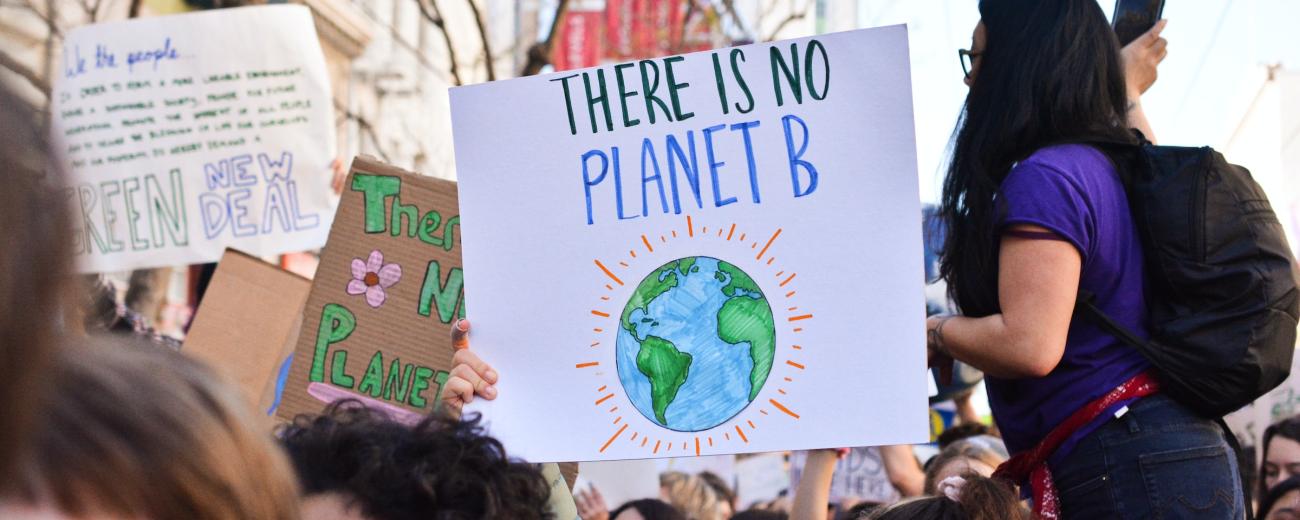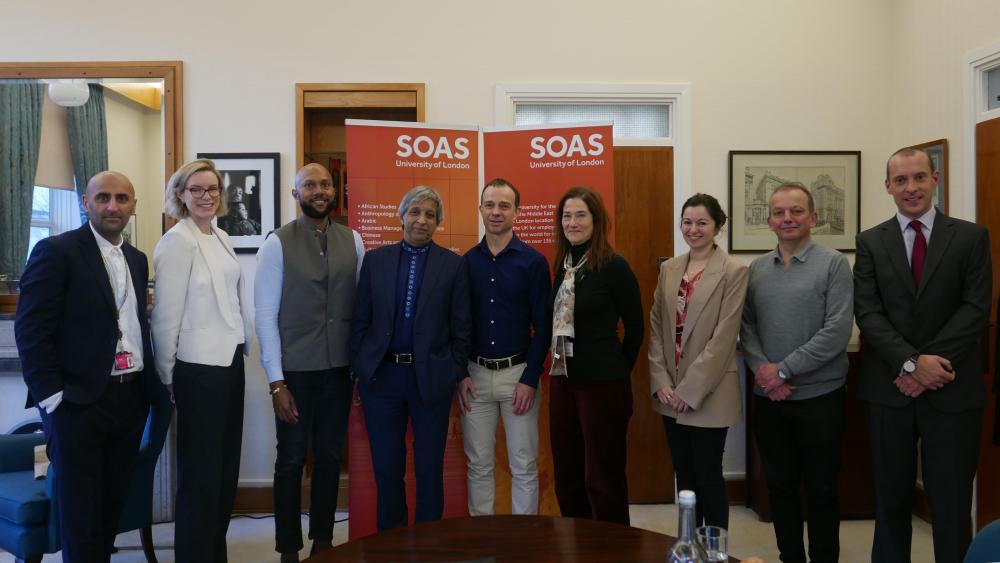SOAS and NLU Delhi join forces to remove barriers to climate justice education


For the first time, a UK university is partnering with a university in the Global South to co-design, deliver, and award an innovative Master’s degree programme to help address ‘humanity’s biggest challenge’.
- International students will pay half the international fees typically charged at British universities
- The joint degree aims to address the global ‘environmental law gap’ by bringing together expertise on climate justice from the Global South and North
- The degree is part of a SOAS University of London plan to create equitable partnerships with universities in the Global South to tackle some of the world’s biggest problems
Equipping people with the knowledge needed to help address climate justice is too important to let financial and national barriers get in the way, according to SOAS Director Adam Habib: "People from around the world urgently need to come together to address humanity’s biggest challenge."
As the COP28 summit draws to a close, SOAS University of London and National Law University Delhi (NLUD) in India have joined forces to remove barriers to climate justice education, to help equip a new generation of experts to confront sustainability issues in their societies.
A new model of climate change education to span national boundaries
"The major problems of our age span national boundaries. We wish to demonstrate with this new partnership how universities in the Global North and the Global South can come together to remove barriers to education and ramp up the international exchange of expertise to help address the crises we face" Habib said.
SOAS and NLUD’s new joint LLM/MA in Environmental Justice in South Asia will, uniquely, be co-designed, co-delivered and co-awarded by both universities. Students will carry out half of their studies at SOAS in London and the remainder of their studies at NLUD in Delhi.
For the first time at a UK university, international students will pay the same course fee as domestic students. As a result, international students will pay half the fees typically charged to international students completing Master’s courses at British universities.
"Through this Joint Degree, we will be able to foster human and institutional capacities, to combat several complex environmental and societal concerns of our times. As a frontline university in India, it is our mandate to serve communities at large by empowering them with solutions to solve the many problems that our generation faces," said Professor G.S Bajpai, Vice Chancellor, NLUD.
Addressing the North-South divide in environmental justice
The new degree aims to address the North-South divide in academic discourse, a division also highlighted in the debates surrounding COP28.
NLUD’s Roopa Madhav, Professor of Law and an environmental law specialist said, "Globally, higher education in environmental justice lacks the combined South-North perspective. Through this new partnership we are bringing together students, academics, and experts at a scale that sets us apart from standalone programmes currently offered in either the United Kingdom or in India. Our programme addresses these gaps in a more financially accessible way for anyone looking to pursue an advanced degree in this field."
SOAS’s Professor Cullet said, "The new degree is the fruit of a shared understanding of the need to expose students to the distinct but intrinsically linked challenges arising in different parts of the world. It builds on a decade of institutional collaboration between NLUD and SOAS in environmental law and joint research efforts between colleagues in both institutions. We look forward to harnessing the energies of students towards building a safer world for all."
The disproportionate impact of climate change on the Global South
This partnership is also aimed at accelerating dialogue about the disproportionate impact of climate change on the Global South. Nearly 130 countries are facing the impact of historically high per capita CO2 emission rates by the Global North. The joint degree is one step towards empowering students to take action as leaders in their communities.
In 2022, SOAS Director Adam Habib criticised the way international students are too often narrowly treated as sources of income and the "consequences of taking the best people" from the Global South and the impact of this on institutions. It is hoped that a series of equitable partnerships can begin to address these challenges and SOAS is expected to announce further partnerships this year.
Earlier in 2023, SOAS launched its first equitable partnership to create a joint three-year PhD in Applied Development Economics – also with a single fee structure – with the University of the Witwatersrand.
